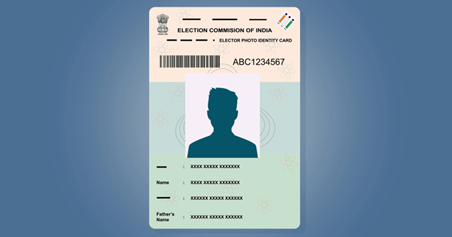Voter ID Issuance and Citizenship Verification Process
Voter ID Issuance and Citizenship Verification Process
Why in the News ?
Following the Pahalgam terror attack, some Pakistani nationals facing deportation claimed they possessed Indian documents such as Aadhaar, ration cards, and Voter IDs. The Supreme Court has halted one such deportation, raising questions on citizenship verification in voter registration.
About the Role of ERO and Objection Handling:
- The Electoral Registration Officer (ERO) ensures no ineligible individuals are added to the roll.
- In case of an objection, the ERO verifies citizenship and may conduct hearings.
- The applicant must initially prove citizenship, but the objector must provide evidence when objecting.
-
For married women, voter registration proof as an unmarried woman and village certificates may suffice.
Issues, Safeguards and Future Measures
- Cases of non-citizens obtaining Voter IDs have occurred before; such entries are later removed.
- The linking of Aadhaar with Voter ID is underway to curb duplicate registrations.
- However, Aadhaar alone cannot identify non-citizens, indicating a need for stronger vetting mechanisms.
Understanding Eligibility and Process of Voter Registration :●As per Article 326 of the Constitution, any Indian citizen aged 18 or above is eligible to vote. ●Section 16 of the Representation of the People Act, 1950 disqualifies individuals who are non-citizens, unsound of mind, or disqualified by law. ● The Election Commission’s Form 6 requires self-attested copies of age and address proof. ● No proof of citizenship is mandated, but a false declaration can lead to imprisonment (up to 1 year) or a fine under Section 31. |




